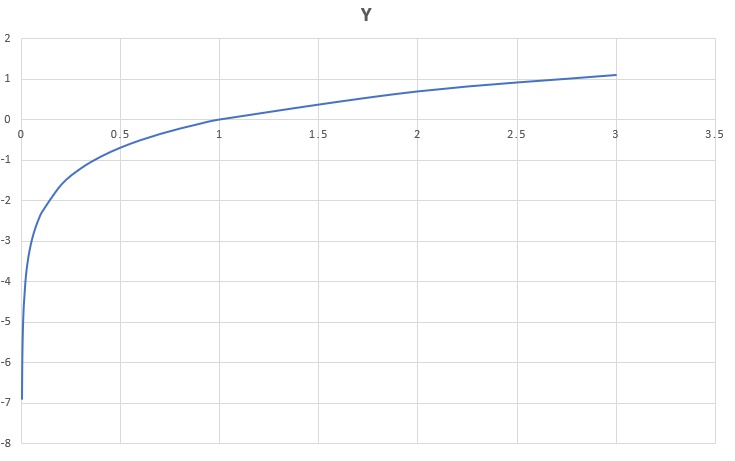C++中的Log()函数:C++中的log()函数返回在参数中传递的参数的自然对数(base-e对数)。

Syntax for returning natural logarithm:
result = log(x)Syntax for returning logarithm (base-10 logarithm) of the argument.
result = log10(x)
参数可以是任何数据类型,例如int,double或float或long double。
Log()函数根据以下条件返回值:
..a)如果x> 1,则为正
..b)如果为0
..c)如果x = 1,则返回0
..d)如果x = 0,则返回-inf ..e)如果x
// CPP program to implement log() function
#include <bits/stdc++.h>
using namespace std;
// function to evaluate natural logarithm base-e
double valueE(double d)
{
return log(d);
}
// function to evaluate logarithm base-10
double value10(double d)
{
return log10(d);
}
// driver program to test the above function
int main()
{
double d = 10;
cout << "The logarithm value(base-e) of " << d
<< " is " << valueE(d) << endl;
cout << "The logarithm value(base-10) of " << d
<< " is " << value10(d) << endl;
return 0;
}输出:
The logarithm value(base-e) of 10 is 2.30259 The logarithm value(base-10) of 10 is 1
应用:
log()函数的应用之一是计算与log相关的值,例如,在查找礼让数字时,我们需要将公式编写为代码,为此我们可以使用log()函数。下面给出了log()函数的实现。
// CPP program to find Nth polite number
#include <bits/stdc++.h>
using namespace std;
// function to evaluate n-th polite number
double polite(double n)
{
n += 1;
double base = 2;
return n + (log((n + (log(n) /
log(base))))) / log(base);
}
// driver code
int main()
{
double n = 7;
cout << (int)polite(n);
return 0;
}输出:
11
相关用法
- C++ fma()用法及代码示例
- C++ div()用法及代码示例
- C++ unordered_map end( )用法及代码示例
- C++ array get()用法及代码示例
- C++ strcspn()用法及代码示例
- C++ array at()用法及代码示例
- C++ iswspace()用法及代码示例
- C++ iswalnum()用法及代码示例
- C++ strol()用法及代码示例
- C++ iswblank()用法及代码示例
- C++ exp2()用法及代码示例
注:本文由纯净天空筛选整理自Striver大神的英文原创作品 log() function in C++。非经特殊声明,原始代码版权归原作者所有,本译文未经允许或授权,请勿转载或复制。
